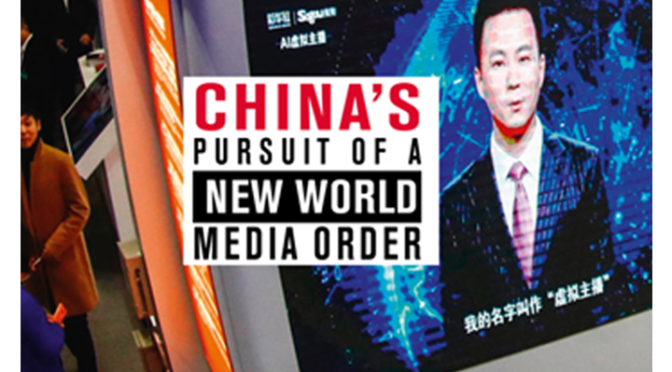The Age of Surveillance
Posted on : August 19, 2019Author : AGA Admin

2019 marked the 30th anniversary of the Tiananmen Square Massacre. The event, which in 1989 had created shock waves globally, is identified as the moment where the possibility of democracy in the rising world power was seen to have been lost forever. The absence of the youth in China among those who remembered the students, who had once united peacefully to protest, is not surprising since the tale and legacy of Tiananmen Square has disappeared from public spaces within China and has almost been obliterated from living memory and official history. Ranked 177 out of 180 in the World Press Freedom Index 2019, China’s pursuit of a “new world media order” has meant that dissidents are targeted to be silenced globally.
In addition numerous reports of re-education ‘concentration’ camps in the Xinjiang region illegally detaining hundreds of thousands of Uighurs, a minority Muslim ethnic group in the region have surfaced and gained momentum in recent months. The Uighurs are culturally affiliated with Central Asia and speak a Turkic dialect. In recent years, many penalties have been introduced to curtail Islamic identity and practice in China such as banning long beards and headscarves, preaching Islamic ideals and even having Islamic names that coincides with the President’s policy of a tightening grip on society, in which ‘loyalties to family and faith must be subordinate to the loyalty to the Communist Party.’
This makes the Uighurs an easy target. Not only do they follow a different faith and speak a different language, they physically look different from the majority Chinese population, the Han Chinese. Reports indicate that in the name of ‘fighting terrorism and religious extremism’, China is carrying out a ‘cultural genocide’ for the sake of an ‘artificial uniformity’ by detaining almost a million Uighurs in interment camps known officially as ‘vocational training camps’ with the inmates as ‘students’ for the transformation and re-education of people with ‘problematic thoughts’.
‘Education’ has emerged as an euphemism for the camps, and the original long-standing denial of the camps by the Leadership has been replaced by presenting the ‘facilities’ as combination job-training and de-radicalization project meant to fight extremism and promote interethnic harmony. Television propaganda shows Uighur “cadets” undertaking “vocational training” and learning Mandarin; almost certainly as a response to mounting international attention and criticism. While people from the lower and middle rung of Uighur community are being detained in these camps, the educated, elite, intellectual and influential members of the community capable of speaking against the government are being sentenced to long prison terms such as the prominent Uighur writer Nurmuhammad Tohti.
The developments in China mark the rise of a modern and more powerful digital dictatorship that wields un-surmountable power and control over citizens. The country is racing to be the first to implement a nation-wide face-recognition algorithmic surveillance that will constantly monitor citizens’ movements, apparently to counter crime and terrorism. According to Freedom House, Internet freedom in China is the worst in the world with a Great Firewall system that blocks access to foreign websites such as Google, Facebook and The New York Times, and access to all citizens’ internet activity. This is the same system that has blocked out more than 6,400 search keywords regarding the Tiananmen Square Massacre.
The Chinese government has also launched its own search engine Baidu, that operates on a similar filter-system and its own version of an instant messaging app called WeChat, both under the control of the ‘internet police’. Extreme journalistic suppression has made detailed investigation in Xinjiang difficult even though the camps were reported to have been in operation since 2014. Journalists are constantly shadowed by Chinese officials in the Xinjiang region and China is facing an overall decline of investigative journalism. The extent of China’s economic and soft power can be ascribed by the fact that apart from Turkey, no other state has issued a public condemnation of the Uighur situation.
As the modern nation-state gets more powerful with the help of technology and rising government-sponsored disinformation becomes more widespread in a world where politics is increasingly growing more populist and rhetoric sharper one wonders whether the time is right to question this Orwellian nightmare and move towards a global system of information governance.
Shromona Jana
Intern
AGA
The opinions expressed in the article belong to the author and do not reflect the position of AGA.





Leave a Reply